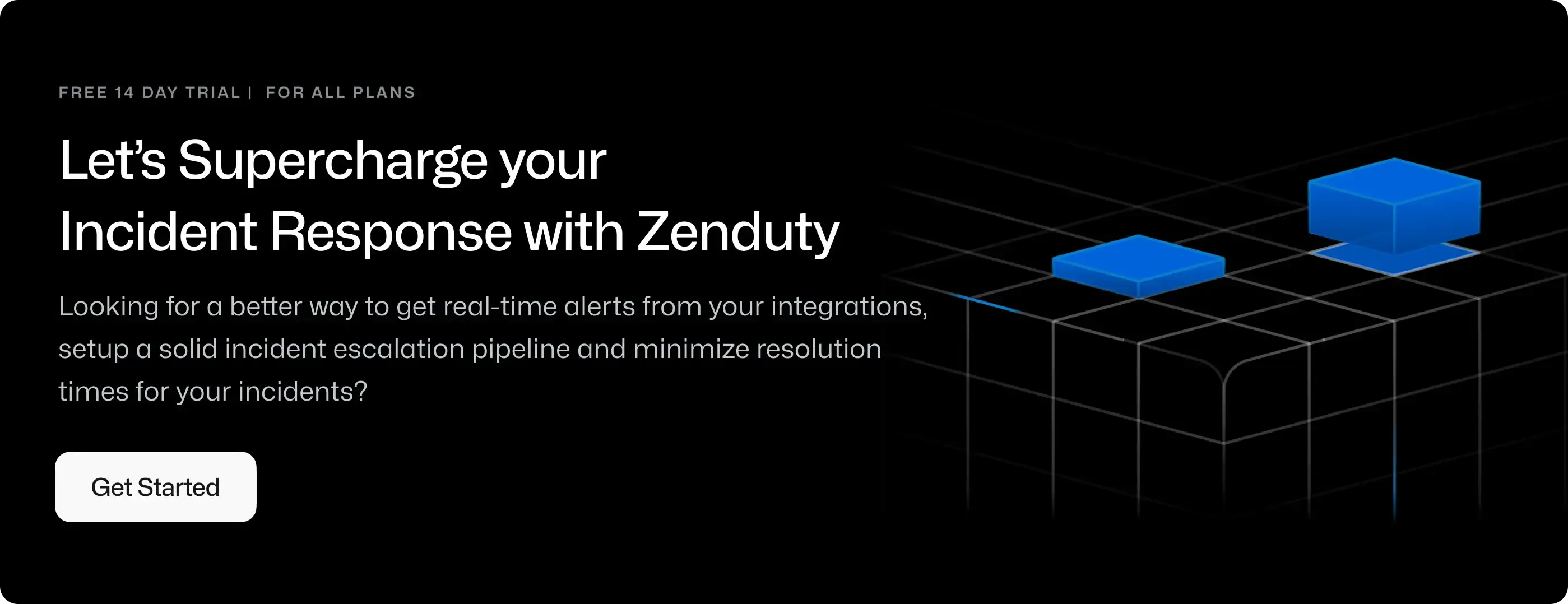Github (2-way) Integration Guide
GitHub brings together the world's largest community of developers to discover, share, and build better software.
With this integration, you will be able to create new Issues in Github whenever a new incident is created on Zenduty. As this is a two-way integration, any update on Zenduty(Resolved) will update the issue on Github(Closed) and any action(Closed) on Github will update the incident on Zenduty(Resolved).
You can also use Alert Rules to custom route specific GitHub alerts to specific users, teams or escalation policies, write suppression rules, auto add notes, responders and incident tasks.
Note: Only the following Webhook Event types are supported: Issue and Action.
To integrate Github with Zenduty, complete the following steps:
In Zenduty:
-
To add a new Github integration, go to Teams on Zenduty and click on the team you want to add the integration to.
-
Next, go to Services and click on the relevant Service.
-
Go to Outgoing Integrations and then Add New Outgoing Integration. Give it a name and select the application Github (2-Way) from the dropdown menu.
-
Go to Configure under your Outgoing integrations.
-
There are Several fields to be added here, Starting off with the Github Token. To generate a Github Token, navigate to Profile > Settings > Developer Settings > Personal access tokens inside GitHub. You can create either a Fine-grained token or Tokens(classic).
NOTE: If you do not have permission to create Personal access tokens, reach out to your organisation's administrator.


-
Generate Personal access tokens
For Fine-grained tokens, provide the Token name, select Expiration as per your policy, select Only select repositories under Repository access, select Resouce Owner of reposotory, select repository under which you want to create issues. In Repository permissions select read and write for Issues. Click on Generate token and copy the newly generated token.
Note : Don't forgot to update token on Zenduty once it expires.


For tokens(classic), provide the Note, select Expiration as per your policy, select repo under Select scopes. Click on Generate token and copy the newly generated token.

-
Paste the copied Github Token in Zenduty and provide the Username under which the repository is created. Search and select the Repository under which you want to create issues.
Example of username is as shown below.


-
Click on Save Configuration to save the details. Click on Test to create a test issue on Github and verify the connection.
- Note: It's recommended to not select the Repository for which you have already created an Incoming GitHub Integration with Zenduty, as it may result in a cyclic loop.

-
Proceed by copying the generated Webhook URL to be added to Github.
In Github:
-
Log in to Github and navigate to the project from which you wish to receive alerts.
-
On the top bar, click on the Project Settings(requires admin rights).
-
From the panel on the left, click on Webhooks. Click on Add Webhook.

-
In the Payload URL input box, paste the Integration URL you copied earlier.
-
Choose Content Type as application/json.

-
Under Which events would you like to trigger this webhook?, click on Let me select individual events.
-
Select the events which you want to track in Zenduty. Events supported as of now are Issues.

-
Click on Add Webhook to save.
-
Github is now connected with Zenduty. Zenduty will create an issue for every incident in a service and will close the issue once the incident is resolved.
